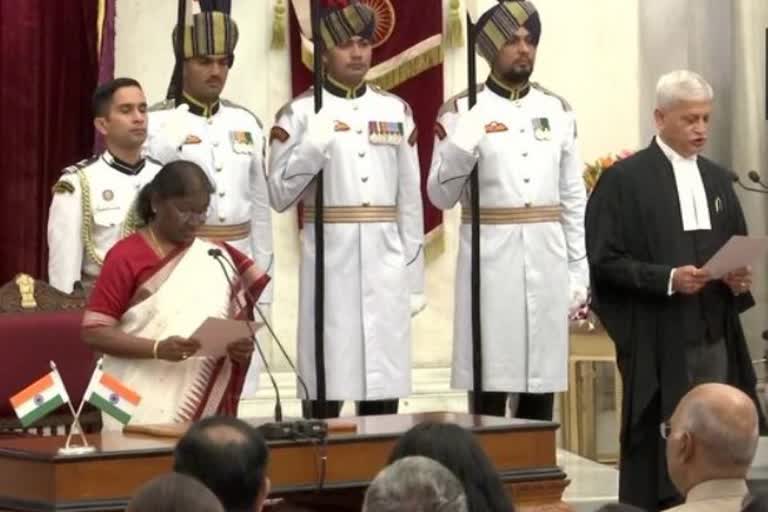New Delhi: A day after Justice NV Ramana retired, Justice Uday Umesh Lalit was sworn in as the 49th Chief Justice of India on Saturday. He was administered the oath by President Droupadi Murmu at the Rashtrapati Bhavan. He succeeds Justice NV Ramana, who retired on August 26. Justice Ramana had recommended Justice Lalit as his successor in keeping with convention and norms of seniority. The President subsequently confirmed Justice Lalit's appointment as the new CJI. Justice Lalit will have a brief tenure of 74 days as the head of India's judiciary and would demit office on 8 November.
On Friday at the farewell function of Justice Ramana, Justice Lalit said that during his tenure of nearly three months he will focus on three key areas and one of his top priorities would be to make the listing of cases simple, clear and as transparent as possible. Justice Lalit has also promised to ensure a clear-cut regime where any urgent matters can freely be mentioned before the respective benches of the top court. He assured that there will be at least one Constitution Bench functioning throughout the year in the Supreme Court.
Also Read-Justice U U Lalit appointed 49th CJI; Justice Ramana conveys best wishes
Justice Lalit said, "I have always believed that the role of the Supreme Court is to lay down law with clarity, consistency and the best possible way to do it is to have larger benches as early as possible wherever the matters are referred to such benches so that the issues get clarified immediately, the matter has consistency and the people are well aware of what exactly are the contours of the peculiar positions in law."
Justice Uday Umesh Lalit was born on November 9, 1957, and began his career after he enrolled as an advocate in June 1983 and practised in the Bombay High Court till December 1985. He shifted his practice to Delhi in January 1986, and in April 2004, was designated as a senior advocate by the Supreme Court of India. Justice Lalit is reportedly due to retire on November 8, 2022.
Among his several landmark judgements, one of the path-breaking verdicts was the August 2017 judgement by a five-judge constitution bench, which by a 3-2 majority ruled the practice of divorce through instant 'triple talaq' as "void", "illegal" and “unconstitutional,". Interestingly, in another important judgement, a bench headed by Justice Lalit had ruled the erstwhile royal family of Travancore has the management right over the historic Sree Padmanabhaswamy Temple in Kerala, one of the richest shrines, holding that the rule of "heritability must get attached to a right of Shebait" (servitor) of the temple, the report said.
Another remarkable and landmark judgement was when a bench headed by Justice UU Lalit ruled that touching sexual parts of a child's body or any act involving physical contact with 'sexual intent' amounts to 'sexual assault' under Section 7 of the Protection of Children from Sexual Offences (POCSO) Act as the most important ingredient is sexual intent and not skin-to-skin contact. Quashing the controversial 'skin-to-skin' judgements of the Bombay High Court in two cases under the POCSO Act, the bench had said the High Court erred in holding that there was no offence since there was no direct 'skin-to-skin' contact with sexual intent, the report noted.



